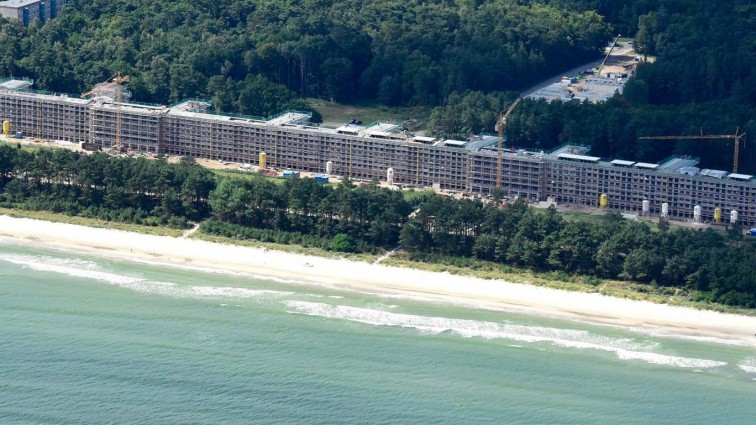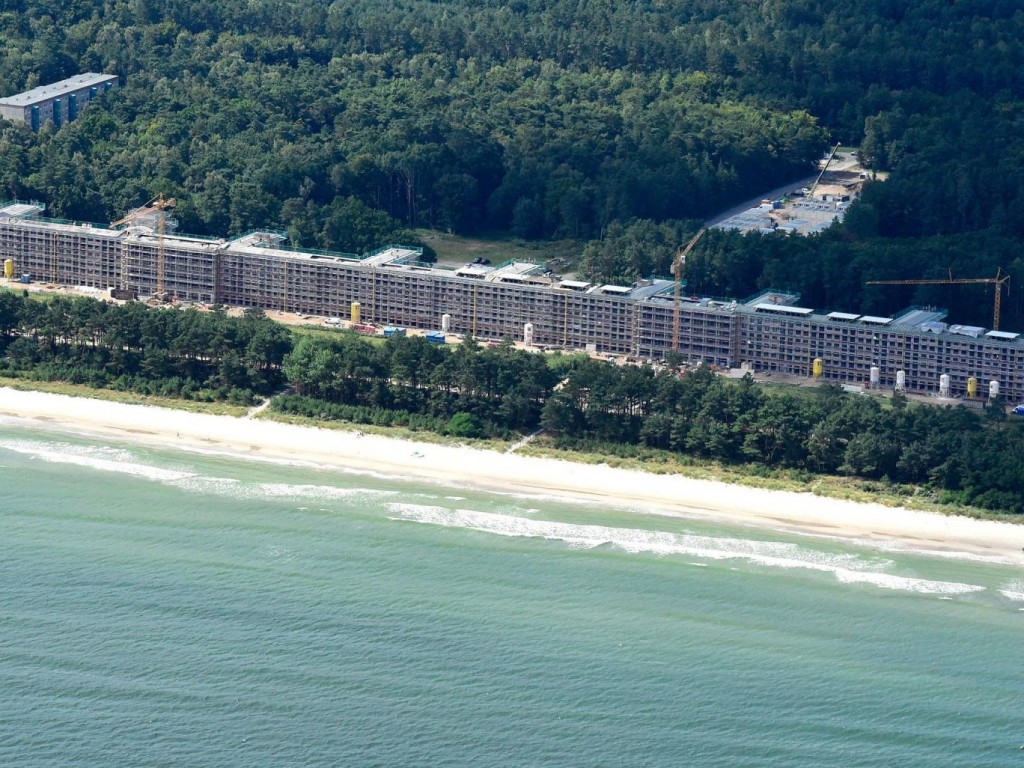Nazi beach resort Prora turned into luxury tourist destination

A massive Nazi beach resort on a German island is to be transformed into a luxury tourist destination.
Prora, on the east German island of Rügen, was originally planned as a parallel to Butlins and was designed to provide affordable holidays for around 20,000 Nazi workers as part of the Strength Through Joy ("Kraft durch Freude") project.
Construction began in 1936 and Adolf Hitler intended it to be used for recreation and indoctrination, but building stopped with the onset of World War II in 1939.
After the war, the complex was used as a military base by the Red Army and, later, the East German military.
The site is one of the largest Nazi relics left in Germany and was formally listed in 1994.
Germans are Scooping up Cheap Condos in Former Nazi Seaside Resort
Eight housing blocks, a theatre and cinema remained as empty shells, while planned swimming pools and a festival hall were never built.
Argentinian pupils 'wearing Nazi armbands attack Jewish students'
Nazi gold train search abandoned- but brings in £150 million for Polish town
Now, four of the eight original six-storey blocks are to be developed. A fifth was turned into a youth hostel in 2011 and the remaining three are in ruins.
Ninety-five per cent of apartments in the Prora Solitaire complex have been sold, with prices ranging between €350,000 (£297,857) for a 100-square-metre ground-floor flat and €650,000 (£553,163) for a sea-view penthouse.
Because the property is considered historic, buyers subject to German income tax are afforded tax breaks.
This picture taken on 17 August, 2016 shows a construction site of luxury apartments as part of transformation of the heritage-protected Prora Complex in Prora, near Binz, north-eastern Germany (TOBIAS SCHWARZ/AFP/Getty Images)
Katja Lucke, chief historian at a private museum on the site, said developers should acknowledge the origins of Prora.
She told The Local: "This is a place where 20,000 people were to be groomed to work and wage war."
She added that witness accounts indicate between 500 and 600 forced labourers worked on the complex.
Политика конфиденциальности | Правила пользования сайтом








